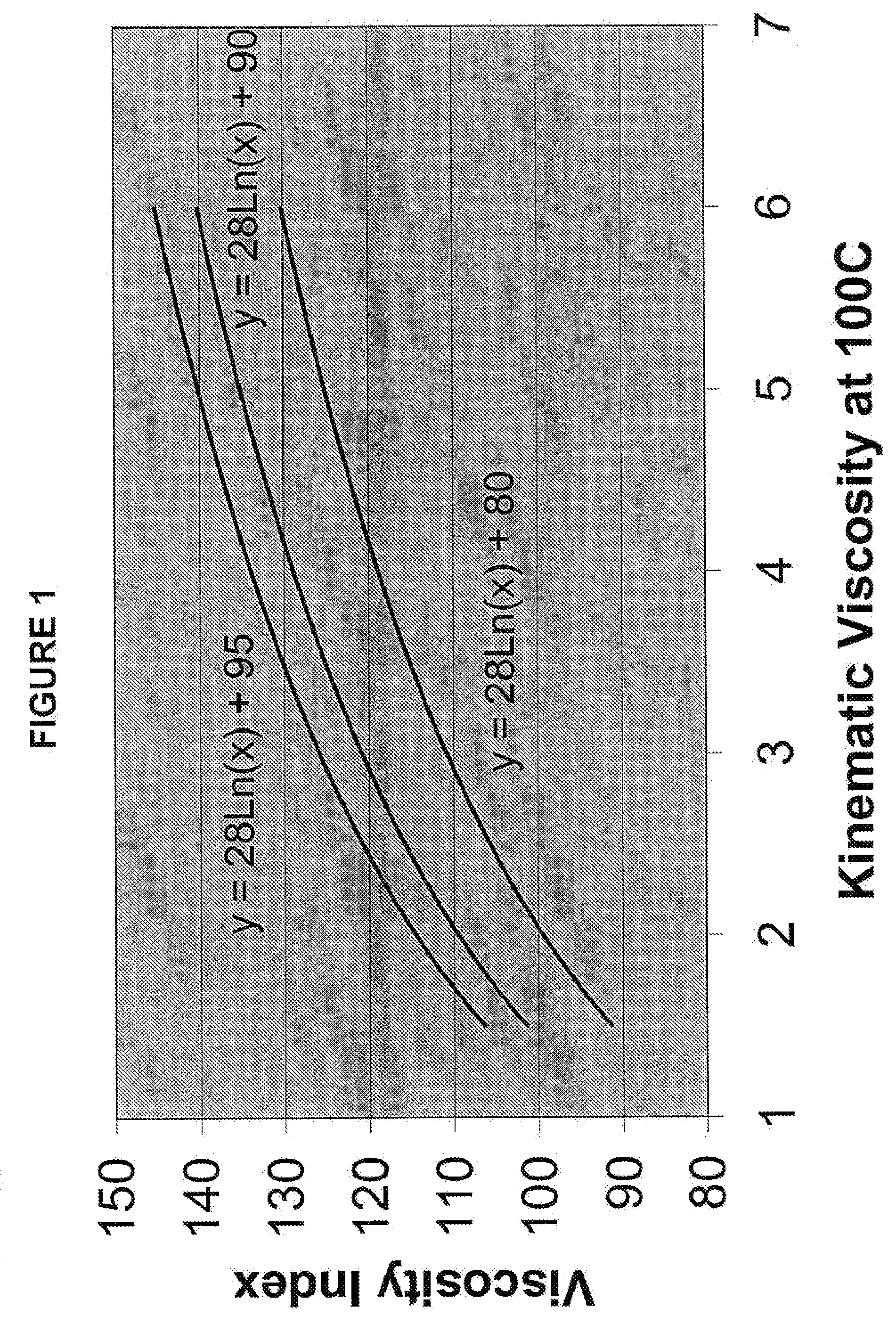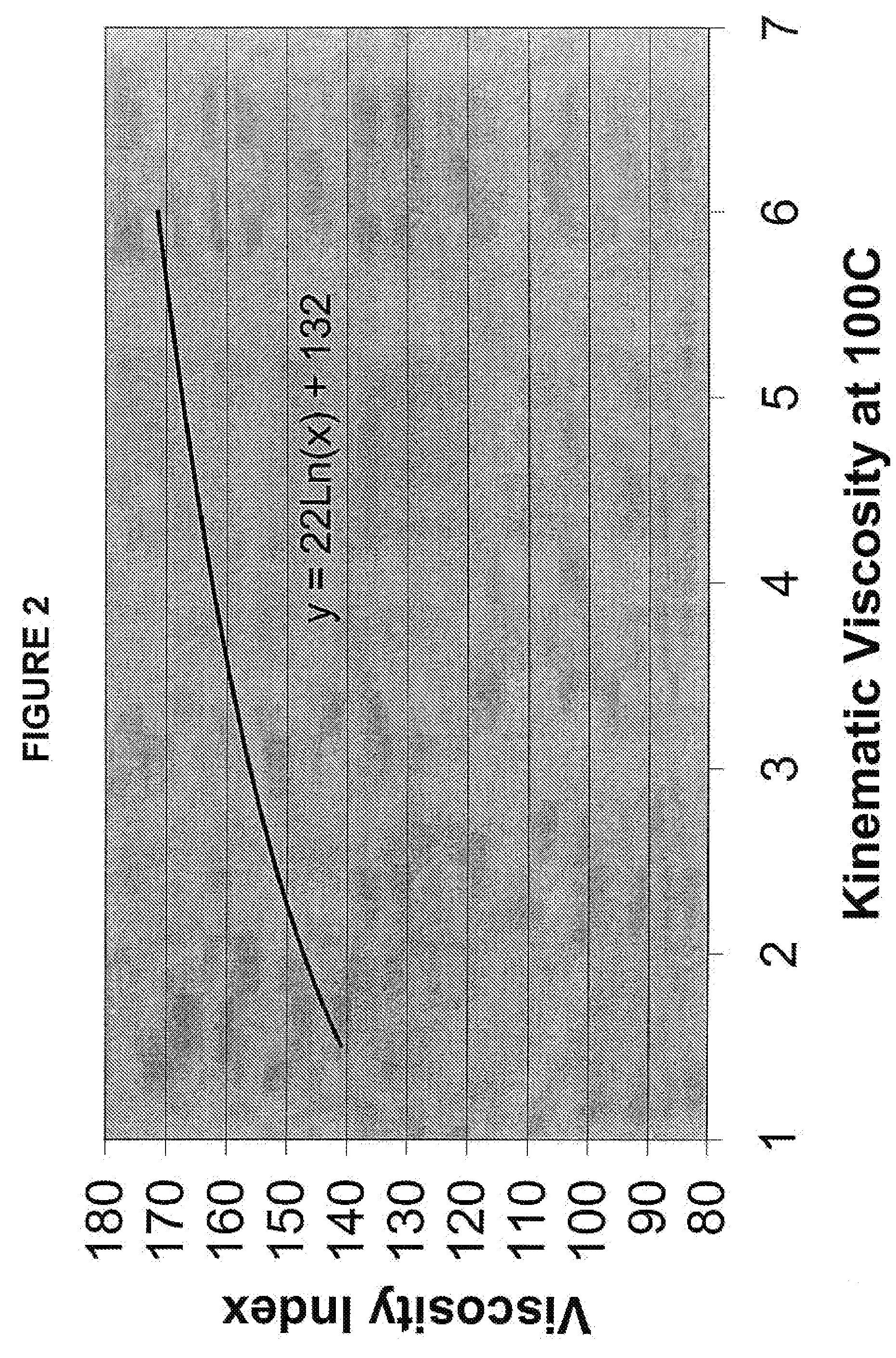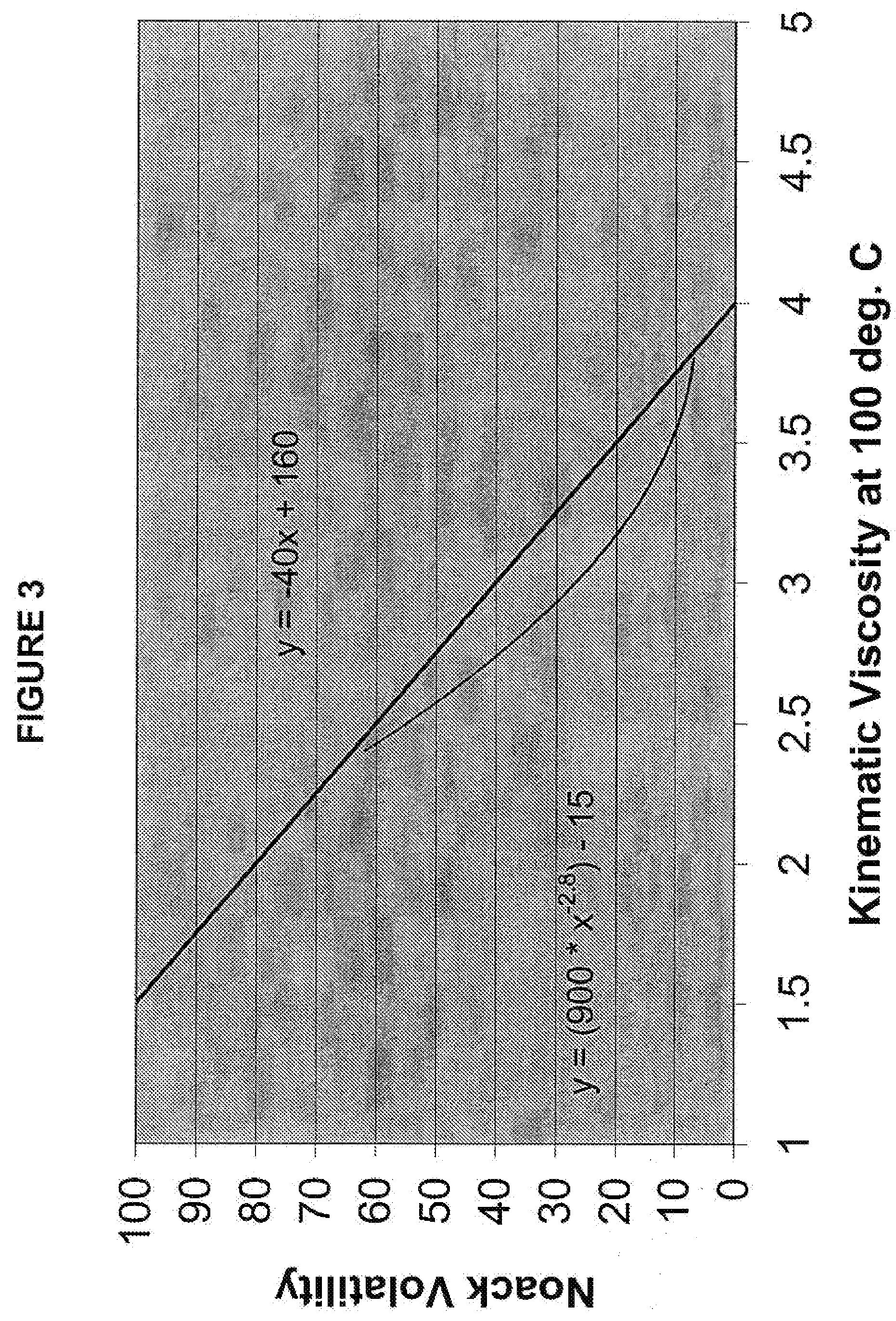Process for making shock absorber fluid
a technology of shock absorber and fluid, which is applied in the direction of hydrocarbon oil treatment, lubricant composition, base materials, etc., can solve the problems of shock absorber paint on the shock absorber, and the failure of current oils
- Summary
- Abstract
- Description
- Claims
- Application Information
AI Technical Summary
Benefits of technology
Problems solved by technology
Method used
Image
Examples
example 1
[0140]Two base oils were prepared by hydroisomerization dewaxing a Co-based Fischer-Tropsch wax and a Fe-based. Fischer-Tropsch wax over a Pt / SAPO-11 catalyst at 1000 psi, 0.5-1.5 LHSV, and between 660-690° C. They were subsequently hydrotreated to reduce the level of aromatics and olefins, then vacuum distilled into fractions.
[0141]The FIMS analysis was conducted on a Micromass Time-of-Flight spectrophotometer. The emitter on the Micromass Time-of-Flight was a Carbotec 5 um emitter designed for FI operation. A constant flow of pentaflourochlorobenzene, used as lock mass, was delivered into the mass spectrometer via a thin capillary tube. The probe was heated from about 50° C. up to 600° C. at a rate of 100° C. per minute. Test data on the two Fischer-Tropsch derived lubricant base oils are shown in Table II, below.
TABLE IISample PropertiesFT-XXL-1FT-XL-1Made from:Co-based Fischer-Fe-based Fischer-Tropsch waxTropsch waxViscosity at 100° C., mm2 / s2.182.981Viscosity Index123127Pour Po...
example 2
[0142]Three different blends of shock absorber fluid were prepared using the FT-XXL-1 and FT-XL-1 base oils of example 1. The formulations and properties of these blends are summarized in Table III.
TABLE IIISAFABlend of FT-Component, Wt %XXL-1 andSAFBSAFCBase OilsFT-XL-1FT-XL-1FT-XL-1Wt % Base Oil96.1596.1597.05Wt % Viscosity Index Improver0.90.90.0Wt % DI Additive Package2.552.552.55Wt % Pour Point Depressant0.40.40.4Wt % VII and PPD1.11.10.4Total100.00100.00100.00
[0143]Note that SAFA, SAFB, and SAFC all have less than 4 wt % combined viscosity index improver and pour point depressant, with SAFC only having 0.4 wt %.
[0144]The properties of these three different shock absorber fluids are shown in Table IV
TABLE IVPropertiesSpec.SAFASAFBSAFCViscosity at 100° C., mm2 / s2.563.233.11Viscosity Index153157135Aniline Point, ° C.>88110.2111.3112.1Brookfield Vis @ −18° C.,100190160MPa · sBrookfieid Vis @ −30° C.,270500510MPa · s
[0145]All three of these oils showed exceptional viscometric prope...
example 3
[0146]Two Fischer-Tropsch derived base oils were made from hydrotreated Co-based Fischer-Tropsch wax. The properties of these two base oils are summarized in Table V.
TABLE VSample PropertiesFT-XXL-2FT-XL-2Viscosity at 100° C., mm2 / s2.3623.081Viscosity Index123124Pour Point, ° C.−39−43Wt % Aromatics0.02050.0043Wt % OlefinsFIMS, Wt %Alkanes75.372.51-Unsaturations20.723.12- to 6- Unsaturations4.04.4Total100.0100.0Total Molecules with24.727.5Cycloparaffinic FunctionalityRatio of Monocycloparaffins to5.25.3MulticycloparaffinsX in the equation: VI = 28 ×98.992.5Ln(VIS100) + XTGA Noack Volatility, wt %63.13.1.1Noack Volatility Factor65.536.76% Naphthenic Carbon by n-d-M3.864.83Average Molecular Weight329381
PUM
| Property | Measurement | Unit |
|---|---|---|
| Brookfield viscosity | aaaaa | aaaaa |
| viscosity index | aaaaa | aaaaa |
| kinematic viscosity | aaaaa | aaaaa |
Abstract
Description
Claims
Application Information
 Login to View More
Login to View More - R&D
- Intellectual Property
- Life Sciences
- Materials
- Tech Scout
- Unparalleled Data Quality
- Higher Quality Content
- 60% Fewer Hallucinations
Browse by: Latest US Patents, China's latest patents, Technical Efficacy Thesaurus, Application Domain, Technology Topic, Popular Technical Reports.
© 2025 PatSnap. All rights reserved.Legal|Privacy policy|Modern Slavery Act Transparency Statement|Sitemap|About US| Contact US: help@patsnap.com



